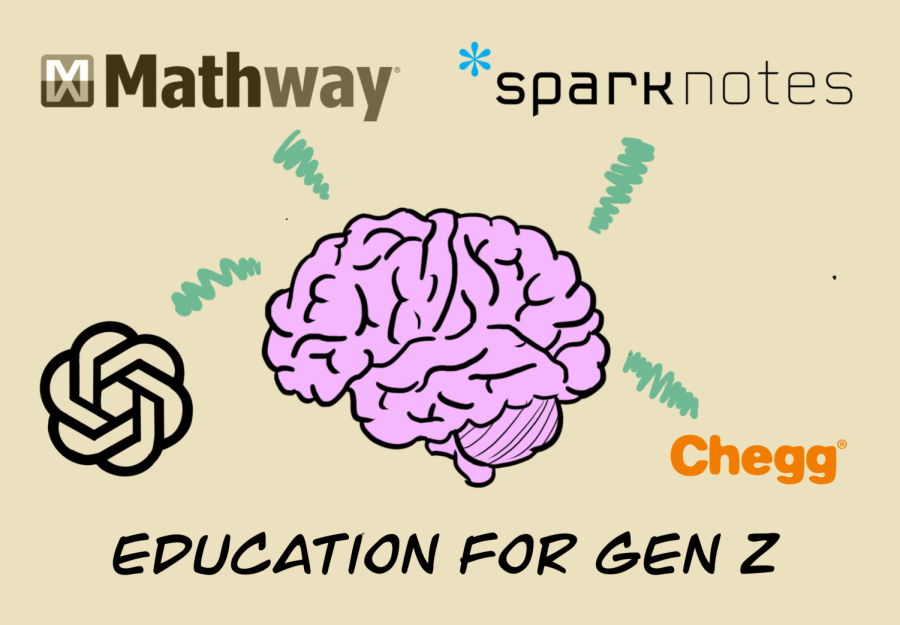Education for Gen Z: A new era of cheating?
Ever since ChatGPT took the world by storm last November, many braced for an impending educational apocalypse, suggesting that schools should learn to live with the artificial intelligence chatbot—an innovation that is here to stay and one that will certainly not be our last.
While schools will inevitably need to embrace AI in their classes—given the already prevalent use of ChatGPT among students even at SIS—simply learning to “live” with AI is not sufficient: attitudinal and behavioral changes among students must be made before the ethical concerns associated with AI-powered education can be addressed.
Academic dishonesty stemming from unoriginal work is nothing new. SparkNotes, LitCharts, Mathway, Photomath, Chegg, and QuillBot are just a few examples of the many resources students have at their disposal to obtain proficient grades without regard for academic integrity. These tools not only tempt students to cheat but also make learning centered around the outcomes (i.e. grades) rather than the process.
Then came ChatGPT, whose debut felt like a quantum leap in technology, akin to the invention of the internet. For Generation Z students, ChatGPT just may have been the most significant technological breakthrough in their lifetime, making cheating more accessible and convenient than ever. ChatGPT’s disruption to education was like nothing else: the chatbot can now do almost anything it is prompted, convincing educators that the technology would spell an end to take-home assignments.
Why bother typing a five-page essay on Hamlet when an AI chatbot can spit out a grammatically-correct essay with properly embedded quotations in seconds? Why spend hours on formative work when I can simply run it through ChatGPT? These questions often run through the minds of too many SIS students, revealing not only shameful intentions behind cheating but also poor attitudes toward learning.
These attitudes should serve as an important reminder that there exists a need for students to honor academic integrity with volition. In most classrooms, students often associate learning with memorization. They memorize the facts and figures to regurgitate them on the testing day—only to forget them all the day after. This behavior often lends itself also to harmful perceptions of homework, which can easily be seen as one-time, “drill and kill” activities. For students, this translates into using ChatGPT to complete assignments without gleaning anything from them.
Not only do these habits deprive students of learning but they also prompt students to rationalize cheating behavior, teaching them that the ends justify the means. Failing to engage in the process of learning will only make it easier for students to forget concepts taught in the classroom, making it more difficult to learn about subjects building off of previous knowledge.
The answer to correcting poor and harmful attitudes toward learning among students lies not in banning ChatGPT but rather in framing learning as a process of discovery and application, not memorization and regurgitation. For schools to effectively “live” with AI and adapt to its developments, students must find genuine interest in engaging with course materials.
Open dialogue with students about academic integrity might help positively shape student attitudes toward learning amidst the widespread use of ChatGPT and similar resources. While expectations for students to uphold academic integrity are well communicated and obvious, students should be made aware of the skills assignments are designed to sharpen—including critical thinking and creative problem-solving. The lack of serious discussion on ChatGPT and its use in classrooms will do nothing but allow cheating to fester.
Complicated psychological dynamics are involved in cheating behavior, and tackling student attitudes toward learning is imperative in addressing academic dishonesty across classrooms. Identifying and addressing the motivational factors behind cheating might just be more effective than banning AI technologies like ChatGPT—or adapting to it—and penalizing those who cheat.
Given the release of more advanced AI technologies, including GPT-4 which made its debut this week, the need to encourage attitudinal changes among students comes at no better time than now.

Daniel Shin is the senior editor-in-chief. In his free time, you may find him exploring the outdoors, swimming, cooking, or listening to music. Feel free...

